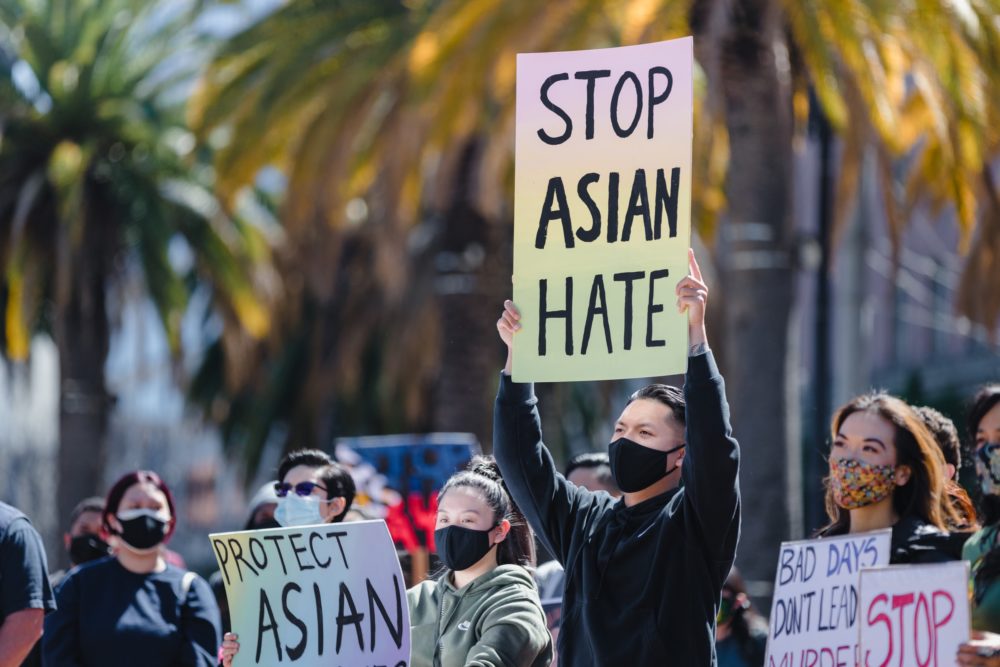Fil-Am Yingying Kooyman experiences Asian hate and racism in many ways and calls everyone to act against the alarming trend in the US.
When the pandemic struck early in 2020, the U.S. leadership was caught unprepared and incompetent. America has suffered the highest number of cases and deaths per capita in the world. Lives were recklessly lost under the former administration of Donald Trump who weaponized coronavirus with his hateful rhetoric and labeling of coronavirus “Wuhan/China virus” and “Kung Flu”. This was believed to have fanned the flames of already deep-rooted anti-Asian sentiment and the coronavirus racism.
The pandemic has hurt minorities (Black, Latino, Asian, etc) the most, and exposed many inequities. The recent rise in anti-Asian harassment, verbal and violent attacks, especially the Atlanta shootings that left eight people dead, have become one of the backdrops of the pandemic in America. Asians of all ethnicities are being racially profiled. Racism is killing Asian American/Pacific Islander (AAPI) community members particularly the elderly. The latest of which is the brutal attack on 67-Year-Old Filipina In New York.
Asian hate is not new
Asian Americans have long roots in American history and have been at the heart of some of the country’s most racist and violent incidents such as the Chinese Exclusion Act (1882), Japanese internment/incarceration in World War II, ethnic cleansing of Chinese immigrants (LA, 1871 and Seattle, 1886), anti-Filipino riots (CA, 1929), among other racially-motivated attacks. Race and economics have been the driving forces for these anti-Asian sentiments. As more people get economically stressed, attention is taken away from the real problems. A scapegoat is required. A group to be blamed is needed. China and anyone looking Asian have been the face of anti-immigrant rhetoric and labels in this worldwide health crisis. The harassment and anti-racism attacks need to be tied into real issues of inequity, racism, bigotry, xenophobia that continue to be part of America’s soul.
The recent racist attacks on Asian-Americans sparked in me so many thoughts and feelings, including anger and fear. I fear getting attacked in public while walking alone. I have never been more afraid because of my ethnicity and Filipino heritage. Despite feeling anxious and angry, I want to be a part of a community that speaks up for and stands up against Asian hate and racism. Yet, I also carry with me the burden of my background and upbringing, a culture that is synonymous to stoicism.
We keep our heads down, We keep going. We are Asians
This is our traditional image and stoicism is almost second nature to most Asian cultures. While this can serve as a compliment at times—especially if it is in reference to standing strong in the face of bad situations—indifference and repression of feelings are the other side of the spectrum. Our practices and values cover that whole stoicism spectrum.
I am a cross between two worlds. I am both stoic and assertive. However, there is a lot of self doubt when I assert myself as an immigrant. Am I creating a lot of noise? Did I cause the incident? What is my part in the whole scene? I am still made to feel that I create an opportunity for the attacks which I personally experience.
Yingying Kooyman
We are targeted because of our ways and the way we look. However, we are labeled as the “good minority” as well. So many prejudices. So many labels.
I’ve been told to my face about this certain fetish for Filipina women (not flattering!). I have been groped in broad daylight while walking on busy Market Street in San Francisco and on the train. I have been hurled unabashed sexual innuendos by men I thought were highly educated and respectable. How did I respond to all of these? In a very Asian way: by crying, presenting a brave and poised front, and by taking a long time to report. I tell my circle of friends. I feel safe with them. These experiences do not leave me though. The fear and anger come and go.
Having lived in America for twenty years, Asians—like me—are Americans. I am part of the fabric here. Prevailing problems affect me directly and indirectly.
Yingying Kooyman
Assimilating involves understanding the socio-economic dynamics and integrating into the fabric of American society, one which is composed of predominantly white members, but with a host of minorities from different countries. Typically, immigrants are expected to learn the English language and adjust to American cultures, values, and customs.
Fight Asian hate and racism
I carry with me a certain level of awareness of myself and the environment I am a part of: America. That is not enough. This is a time to educate one’s self and get involved in building safety and inclusiveness, and not a time to stand in silence, but to stand up for racism when I see it.
Advocating for change requires listening, openness-mindedness, participation, shared decision-making and realizing power with a broad group of people, and equitable distribution of resources.
Yingying Kooyman
I want my fear to serve as a galvanizing force. Sitting back is not an option, nor holding things in. Drawing attention to the issues, advocating for them, and being a part of inclusive conversations will make Asian-Americans matter more.
Most Asian-Americans are not associated with advocacy, activism, or having political clout. That is changing. It feels like a moment of reckoning, and a conversation and change need to be had more than ever.
The Biden administration announced new steps to tackle anti-Asian violence and discrimination. A series of directives have been established and launched, including funding National Science Foundation’s study on discrimination and xenophobia. President Biden also named Erika L. Moritsugu as the liaison to the AAPI community. Senator Mazzie Hirono, Democrat of Hawaii and Representative Grace Meng, Democrat of New York sponsored the COVID-19 Hate Crimes Act. Twenty-six bipartisan governors condemned the racist and violent attacks and expressed support to Asian-American communities.
Structural racism in America in explicit and implicit forms needs to be at the forefront and included as a part of a broader dialogue and with greater intention.
The conversation on race and racism in America will require affecting policies in the more formal structures such as the legislature, government agencies, and political parties. The other conversation needs to happen in civil society, families, communities, neighborhoods, workplaces. These two platforms need to co-exist to achieve transformative change and represent many voices. The process needs to be inclusive, accountable, and continue to confront imbalances of power and effect change.
Asian-Americans cannot be the invisible good minority anymore. Racial animus is part of American life. It is okay to stick out.
What's Your Reaction?
Yingying Kooyman is married and lives in the San Francisco Bay Area in California. She loves to travel and the heightened experiences and challenges that immersing in unfamiliar cultures, languages, structures brings. She realizes that people of different cultures share the same things: love for family and life, and that overall people are kind. An avid fan of Rafa Nadal, she gardens, loves jazz, and learning new languages. She collects cookbooks and dabbles in photography. She is a lifelong advocate for children’s causes and social justice.




